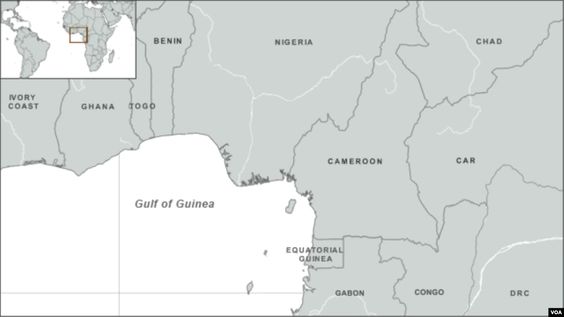Africa
Countries in the Gulf of Guinea agree to halt illegal Chinese fishing

Environmental groups say that Chinese boats in the Gulf of Guinea are destroying fisheries and fishing villages in West Africa.
A South African think tank, the Institute for Security Studies, estimated that the towns might lose more than $2 billion a year to illicit fishing, primarily from Chinese-owned boats.
Geoffroy Gbedevi, a fisherman from Benin, claimed that providing for his wife and daughter is becoming more difficult. He claimed that because fewer fish are being caught than in the past, the community is suffering.
“Nothing is developing the way it once did,” he declared.
Yaya Toshu Koma Benoit is a well-known person in Grand Popo, a small fishing village in Benin near the border with Togo, where most people have been forced to leave to find work elsewhere.
He attributed some of the issue to fishing methods that catch fish before they are completely mature.
He explained, “That’s why there aren’t any more fish.” ” It would be nice if we could outlaw this practice. Because many fishermen are using smaller mesh nets, there aren’t many fish left.
The Environmental Justice Foundation found that 90% of illegal fishing boats in Ghana were owned by Chinese people, even though they flew Ghanaian flags.
For “simple measures to establish transparency,” Environmental Justice Foundation’s Steven Trent called.
“Number plates serve as an identifier for cars,” he stated. Give each of these vessels what is known as a “unique vessel identifier,” to put it simply, in order to get rid of all the people who, in many cases, are just robbing some of the world’s poorest people of their seafood.
In one piece published last year, the state-affiliated Global Times daily rejected what it dubbed “Western media claims” about China’s illicit fishing and said Beijing had increased monitoring of deep-sea fishing boats. China has constantly denied wrongdoing.
This year, the nations of the Gulf of Guinea joined together to combat illegal fishing. With help from the European Fisheries Control Agency through a facility in Accra, Ghana, Benin, and Togo agreed to work together and share information during patrols.
But Susan Steele, the executive director of the organization, said additional efforts are required.
She listed four categories: operations, training, cooperation, and law. “Make sure there are consequences for those who engage in unlawful fishing.” “That is one of the important things you want to be looking for.”
Fish stocks are showing signs of improvement, according to some fishermen VOA spoke to in Benin. They claimed that the joint patrols appeared to be helping.
Gbedevi’s only concern is feeding his family. He claimed that he always had hope that things would improve.
